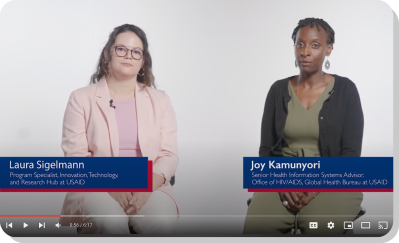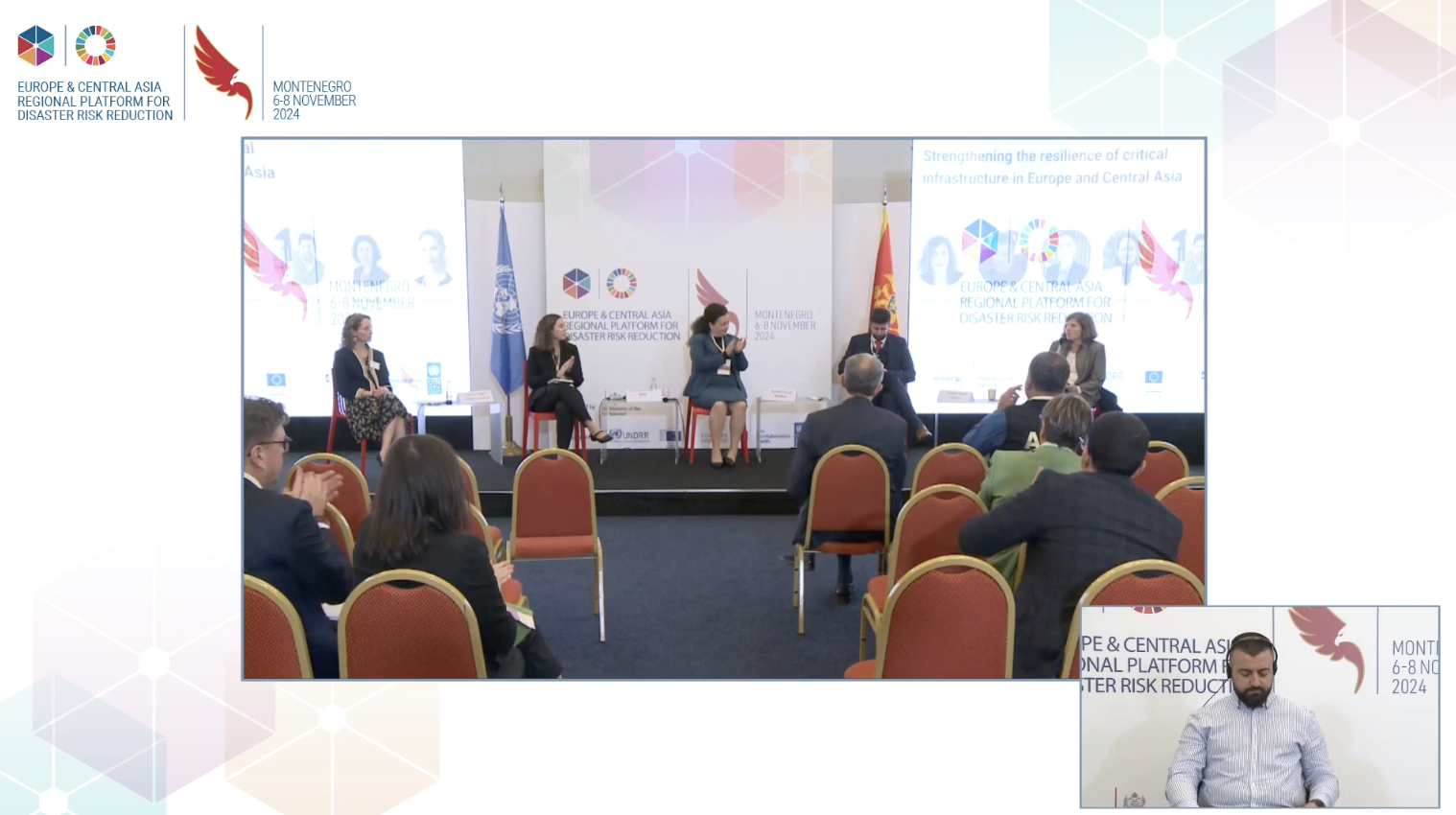By Lara Henneman, TechChange Content Specialist
You really can’t talk about digital development without including a discussion on digital government. From electronic payment of social benefits to municipal reporting mechanisms, government initiatives that leverage technology may be the most visible representation that digital development has on the lives of many people, particularly within low-to-moderate income countries.
USAID’s Digital Government initiative supports governments around the world to use digital tools responsibly for management, service delivery, and stakeholder engagement. At this year’s Global Digital Development Forum, representatives from USAID took the opportunity to gather practitioners, donors, and partners for a candid discussion on digital government priorities and concerns.
Digital Government Roundtable Session
Although each particular context is unique, digital technologies are a central component of the development journeys of countries everywhere. The audience included major implementers and funders of digital government initiatives but privacy was accorded to participants under the Chatham House Rules for discussions on sensitive topics. USAID facilitators Laura Sigelmann and Beth Hain and DAI facilitators Talia Dweck and Deepika Ramachandran led the group in a 60 minute roundtable discussion, through timely, open-ended questions on innovation in digital government, approaches that work, and individual country concerns.
Key Takeaways
Like many sessions at GDDF, artificial intelligence (AI) was top of mind. Participants were generally wary of generative AI, speaking of the high risks they saw associated with its use in government services – particularly in social services and benefits, where bias can drastically impact individuals. Participants also noted that non-generative AI is considered low risk, and can have a positive impact for government functions such as translation services. But, as one participant noted “AI is not a flash in the pan technology that’s emerging, we already know that it’s here to stay.”
Many noted that enterprise-wide digital architecture that cuts across sectors is missing in most countries. The Ukrainian Diia app, which was supported heavily by USAID, was mentioned by several participants as a success story of service digitization across government areas. Another emerging leader was the government of Rwanda, which has digitized nearly all of its services.
On a positive note, participants shared their excitement around the growing evidence of a correlation between digital government and gender inclusion. But many participants noted that influencing citizens to move from analog to digital can be difficult, particularly in places where there may be an existing lack of trust in government services.
Many practitioners shared a common experience– the large amount of resources/ funding needed to start the digitization process can be a deterrent for large scale initiatives. Change management in governments is difficult, but presents amazing opportunities for improvement of quality of life. For example, one participant talked about a UNICEF case management system that helps unaccompanied children to reunite with their families. This incredible system already has 10,000 users and partnerships in place with government agencies and NGOs across the world.
USAID and its development partners are increasingly supporting countries in the process of adopting technologies to create public value, while mitigating and avoiding risks. Conversations like the robust discussion at #GDDF2024 help to inform that work.
Learn more with Digital Government Video Series
TechChange, as the primary organizer of the GDDF conference, was thrilled to provide a venue for this discussion. And the session at GDDF wasn’t the first time that TechChange supported USAID’s Digital Government initiative. In 2023, our learning designers partnered with Development Alternatives Incorporated (DAI) and USAID to produce a video-based microlearning series on Digital Government, and the USAID Digital Government model.
Those videos, which may be viewed on their own as a stand-alone learning tool, or as part of a comprehensive series include the following:
Module 1: Digital Government: Understanding Key Components. Digital government projects in Nigeria, Kenya, and North Macedonia are featured to demonstrate the key components outlined in the videos.
Module 2: Digital Government: Mitigating Risk. A variety of dangerous, hypothetical scenarios are employed to illustrate key risks of digital government projects.
Module 3: Digital Government: Project Implementation. This video highlights good practices in project implementation through the lens of an electronic payments system in the Philippines.
Module 4: Digital Government: Governance and Sustainability. An e-procurement and online services model in Ukraine illustrates good practices in governance and sustainability.
Module 5: Digital Government: Inclusion and Trust. This video showcases the inclusive design process of a municipal app in Guatemala.
Digital government is a fast-moving area of digital development. Learning tools such as this video series, and high-level conversations such as the GDDF Roundtable are essential to ensure that digital development practitioners have an informed seat at the table.
Want to know more? Check out USAID’s resources on digital government.




